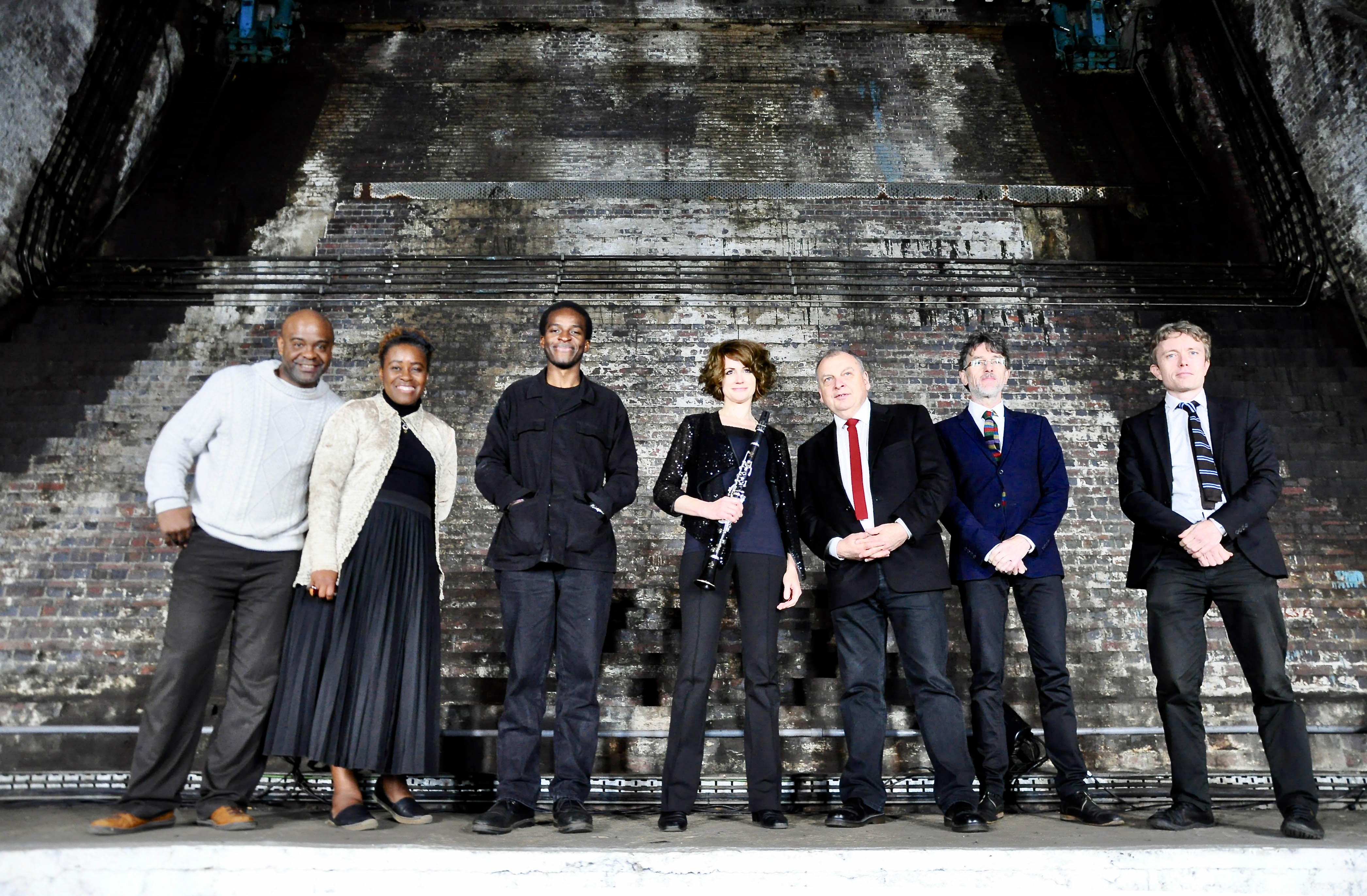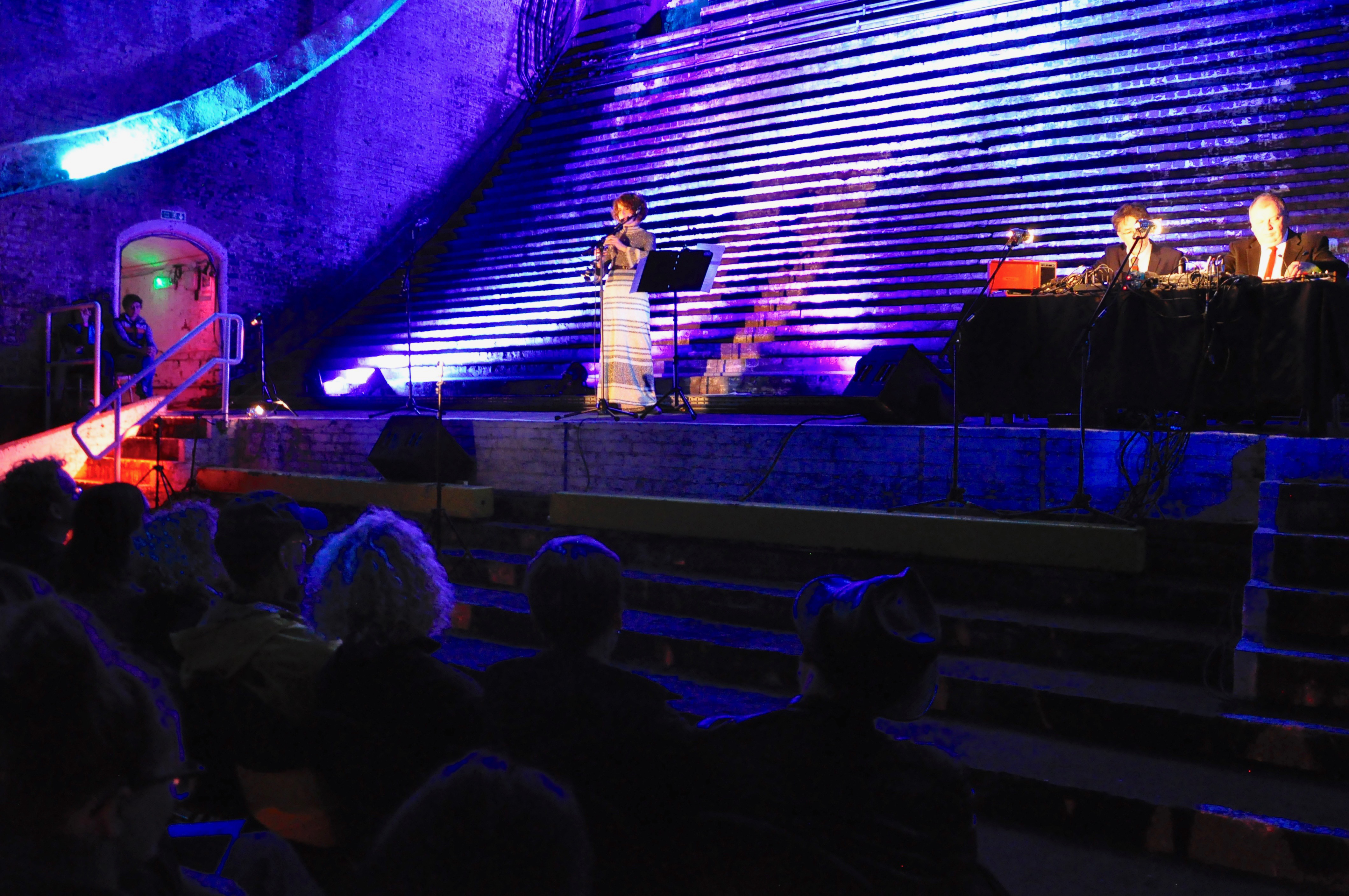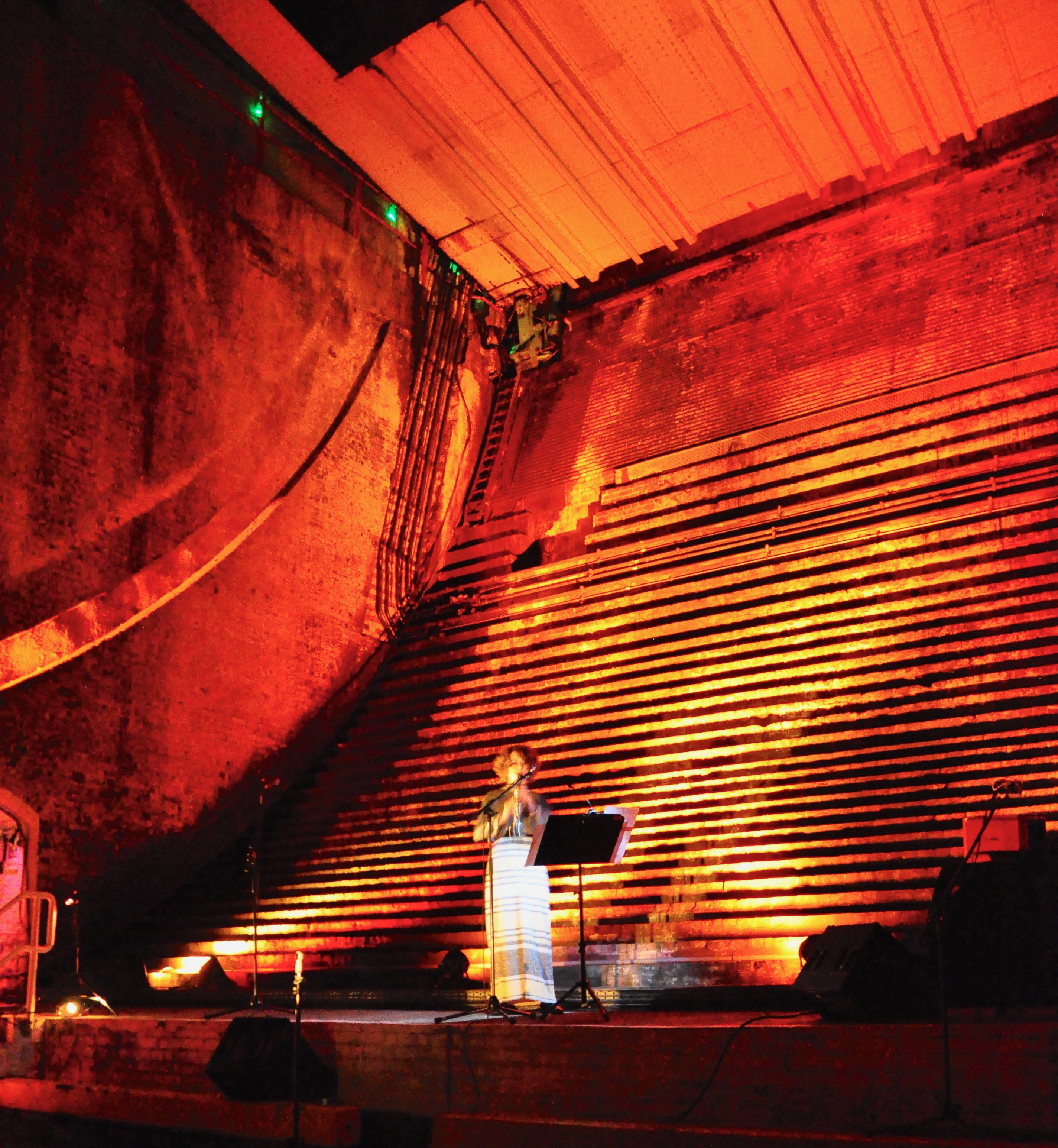The highlight of the concert is Kate Romano’s controlled, expressive and experimental clarinet playing. We first let Steve Reich’s New York Counterpoint wash over us, a combination of Romano’s live performance with pre-recorded material. Reich is renowned for introducing minimalism to the classical world; this piece is the epitome of his simplistic style that lets the harmonics of the instrument create the colour. The complex construction that comes forth from layering the same instrument and the same performer over and over in a loop style is of the utmost purity – Romano’s sound is crystal clear as it bounces off the stony walls of the chamber. Combined with Ulf Pedersen’s lighting design, Romano conveys warmth in her playful rendition, a series of open-ended motifs that invite us in with a quizzical, questioning attitude.
It’s a cleverly commissioned contrast to Romano and Langham Research Centre’s co-written piece, Music for Clarinet in a Resonant Chamber. Here we are treated to a Handel-inspired melodic line, the tonal version of a plainchant that is then not only distorted by electronic means, but by Romano’s changing embouchure and manipulation of the clarinet itself. Clicks, breathy tones and varied timbres sharply crash off the chamber walls before being electronically deconstructed in a piece that leans towards the distorted side of comforting. There is just enough of the familiar for the audience to lean towards the contemporary with interest, rather than shy away from its strange presence.
The Bascule Chamber Concerts are a truly contemporary expression of what it means to break apart sound and reassemble it with novel, often uncomfortable results. But it also pays homage to a river that has become the lifeblood of our nation’s capital and a composer whose work has in many ways acted as the lifeblood for classical musical progression. The subterranean nature of the event only serves to remind us of the ever-changing landscape that exists above, ebbing and flowing along with the river that has fed us for so many centuries.
Culture by Night | Daniel Perks



